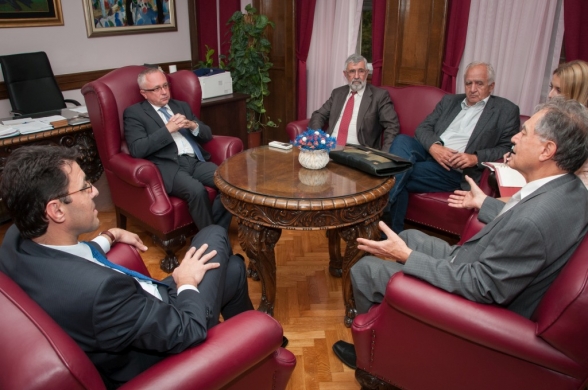Vice President of the Parliament of Montenegro Suljo Mustafić, received the delegation of the Igman Initiative: Branko Lukovac co-president of the Igman Initiative for Montenegro, Aleksandar Popov co-president of the Igman Initiative for Serbia, Vehid Šehić co-president of the Igman Initiative for BiH, Tanja Bakalbašić Project Coordinator for Montenegro and Branislav Radulović member of the Senate of the State Audit Institution of Montenegro and expert of the Igman Initiative.
Co-presidents of the Igman Initiative informed the Vice President Mustafić about reports of project experts, reminding of the problems and recommendations for all four states. Also, they presented the program of work for the future period for which there would be a common need directed to promotion and enhancement of regional ties and cooperation on projects that would ease the lives of citizens in this area.
Igman Initiativelaunched at the end of 2013 the project "Free movement of labor between state signatories of the Dayton Agreement, with the use of Nordic model of cooperation." It also deals with the integration and inclusion of a large number of organizations that are active in this field.
During today's meeting, Vice President Mustafić emphasized that the Igman Initiative is today one of the most important regional initiatives that was among the first ones to initiate the process of cooperation and establishing broken ties in the states in the region.
He also pointed out that the issues that the Igman Initiative is dealing with, as well as problems it was trying to solve, are very important. According to him, both in the previous period and today, they are important for the state and the citizens in the region.
- Therefore, the ideas of initiatives are discussed in your sessions, they are very serious and deserve full support, said Mustafić.
In addition to the aforementioned, during today's meeting it was also discussed about the initiatives that would be directed to solving the problems of education, student status, recognition of diplomas, as well as models of regulation of property rights of citizens of all four countries.









